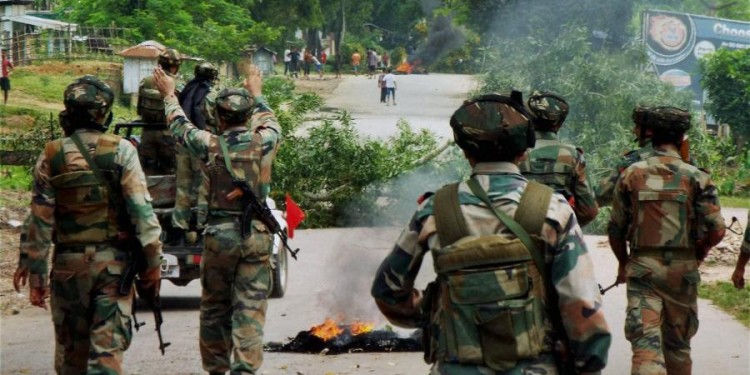In news- The Union Home Minister Amit Shah recently announced that the Armed Forces Special Powers Act (AFSPA) will be removed from several districts across Assam, Nagaland and Manipur.
Key updates-
- The decision comes in the backdrop of demands for AFSPA to be lifted after six civilians were killed Nagaland’s Mon district in December 2021 in a botched operation by security personnel.
- The Centre accepted the recommendation of a high-level committee formed (Dr. Vivek Joshi committee) in the aftermath of the Mon killings and decided to withdraw AFSPA in a phased manner from April 1, 2022.
- The notification of “disturbed areas” under AFSPA has been in force in Assam since 1990, in Nagaland since 1995, and in Manipur, except the Imphal Municipality area, since 2004.
- Now, according to the Ministry of Home Affairs (MHA), AFSPA is being removed from 15 police station areas in seven districts of Nagaland; 15 police station areas in six districts of Manipur; and 23 districts entirely and one district partially in Assam.
- The first major move at the Central level on AFSPA was taken in 2004, when the Jeevan Reddy Committee set up by the then UPA government had recommended its repeal but the recommendation was rejected.
About AFSPA-
- Armed Forces Special Powers Act (AFSPA), 1958 gives armed forces the power to maintain public order in “disturbed areas”.
- The Act came into force in the context of increasing violence in the Northeastern States decades ago.
Provisions:
- Any suspect can be arrested without a warrant.
- Armed forces can search any house without any warrant and required force can be used to search for it.
- The armed forces have the authority to prohibit gathering of five or more persons in an area.
- The forces can open fire on the disturbing factors after giving due warning if they found any suspicious person.
- If a person is a repeated offender and tries to disturb the peace of the area then armed forces are entitled to use force till his death.
- If the Armed Forces suspect that any militant or offender is hiding in any house/building then the site or structure can be destroyed by the forces.
- Any Vehicle can be stopped and searched.
- Even in the case of wrongful action by the armed forces, legal action is not taken against them.
Process of declaring a Disturbed Area:
- A “disturbed area” is one which is declared by notification under Section 3 of the AFSPA.
- As per Section 3, it can be invoked in places where “the use of armed forces in aid of the civil power is necessary”.
- An area can be disturbed due to differences or disputes between members of different religious, racial, language or regional groups or castes or communities.
- The Central Government or the Governor of the State or administrator of the Union Territory can declare the whole or part of the State or Union Territory as a disturbed area.
- The Ministry of Home Affairs would usually enforce this Act where necessary, but there have been exceptions where the Centre decided to forego its power and leave the decision to the State governments.
- Army and armed forces are sent in the area only after the implementation of this law.
- As per the Section (3) of the AFSPA, it is mandatory to seek the opinion of the state government whether an area is disturbed or not.
- If an area is declared as the disturbed area, it will be under the control of special forces for at least 3 months.
Criticisms:
- The Act has been described as a draconian law that encourages the Army to carry out human rights violations with impunity.
- Section 4 empowers officers to “fire upon or otherwise use force, even to the causing of death” not only in cases of self-defence but against any person contravening laws or orders.
- Hence it is criticized for providing sanction to soldiers for excessive use of force that is in contravention to international norms.
- This section is also said to be in violation of Article 21 of the Indian Constitution.
- Section 6 of the Act prohibits prosecution or other legal proceedings without the sanction of the central government and hence it is argued that this provision gives blanket immunity to soldiers.
- Many times the armed forces are blamed for conducting fake encounters and sexually exploiting women in the disturbed areas.
The AFSPA will now be applicable fully only in 31 districts and partially in 12 districts of four states in the Northeast Assam, Nagaland, Manipur and Arunachal Pradesh. It was completely withdrawn in Meghalaya in 2018, Tripura in 2015 and Mizoram in the 1980s.














